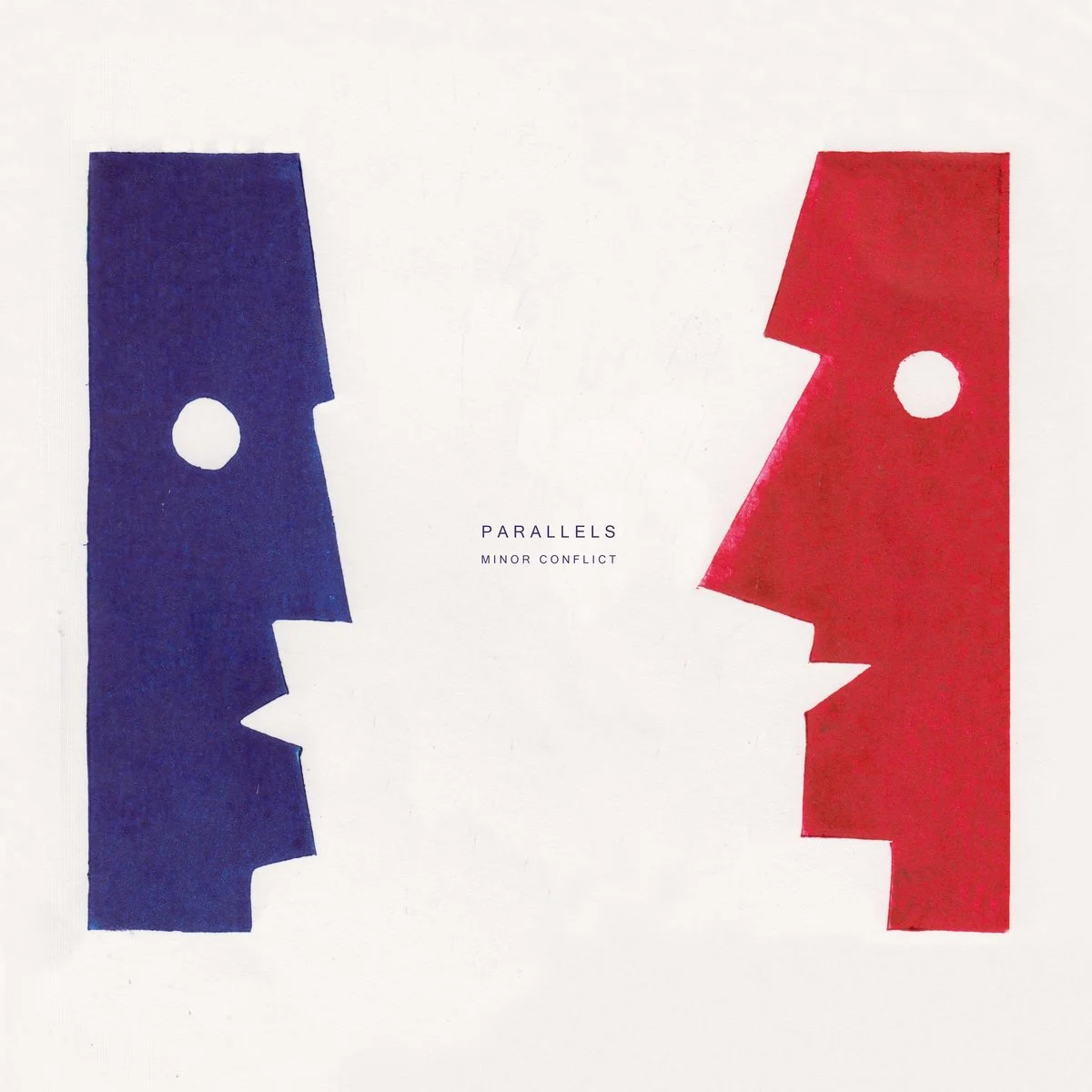by Louis Pelingen (@Ruke256)
More than ever before, the current state of Post Punk music has been quite thrilling to see, especially within the UK scene.. There are so many bands willing to experiment and morph the foundation of the genre with intriguing sonic and lyrical pathways that further harness emotional and thematic complexities - think English Teacher or Squid. Minor Conflict, a post-punk group comprised of Natalie Whiteland, Josh Smyth, and Robbie Warin, is certainly one of those newer groups that elevate the genre into a different light, branching into captivatingly bizarre directions on their 2023 EP, Bright Lights, Dead City. The EP carried delicate tones hemmed into deadpan vocals, light instrumentation, and idiosyncratic melodies that made for a short but alluring listen, one that gives more fascination on where they’ll end up next.
Two years since their debut EP, Minor Conflict expand upon what they’ve laid previously with Parallels EP. Here, there is a curious attitude that lingers in the band’s melodic structure, where harp, bass, drums, synths, and horns gradually glide along John Smyth’s deadpan delivery as Natalie Whiteland’s sonorous singing take center stage. These melodies never overtake their distinct vocal styles, but instead provide space to harmonize their presence, all of which enhances the odd yet captivating flair of these compositions. On “Margate Sands,” rattling drum rhythms give leeway for synths to murmur, and the combination of horns and harp lines to cascade through. The dynamic instrumental swells of “Parallels II” are brought on by angular melodies, and the morose tone of “In The Summer” is set by layered vocal harmonies, somber violins, and plucking strings.
This harmonized blend, paired with the overall flow of the EP comes off as enticingly calming, providing a blissfully dulled-out companionship to the scattershot lyricism on display, one that paints the story of a protagonist who awaits their lover to arrive, willing to wait for them despite carrying the constant experience of being trampled upon by inconsiderate people while working through tiresome, endless work routines. Yet, as implied through the mentions of seasons on “In The Summer” and the disintegrating imagery of “Glue,” the relationship didn’t stand strong after all that time. It’s very much a slow, cold breakup, where the added themes of environmental disintegration, travel restriction, and industrial change do add a subtle weight to the overall arc. The decision to be resilient is worth it because of the lover that will eventually arrive, a resiliency further tested now that the relationship has fallen apart.
Parallels EP’s blurry presentation, its delightfully melodic shifts, and stark lingering moods create an intentionally deceptive listen. It’s an expansion on what the band has pushed forward, with so many manners of change and growth that are worth looking into as they progress. Minor Conflict are always looking for spaces where positive growth and newfound insights intersect.

